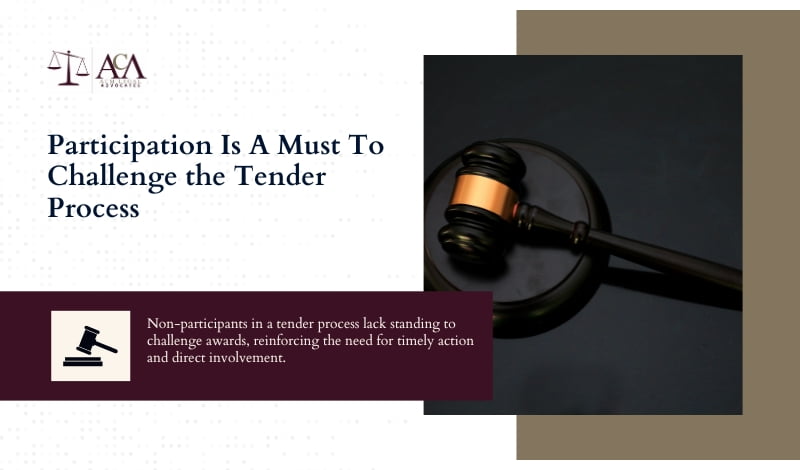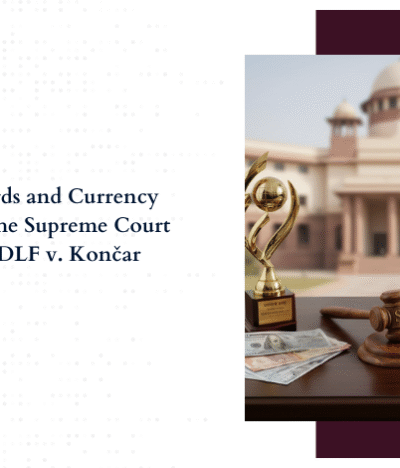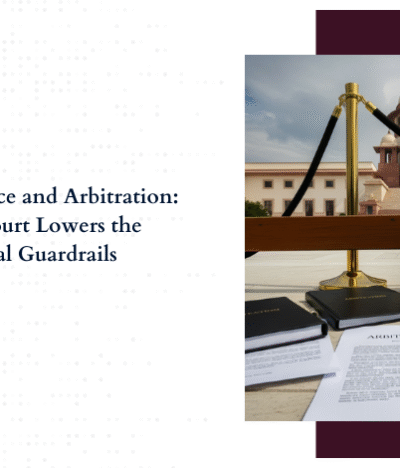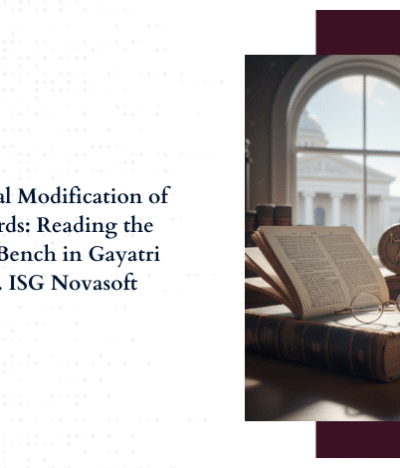Tendering is considered as a suitable method which helps ensure fairness and healthy competition amongst bidders. It is a process where an entity seeking specific goods or services requests proposals or bids from interested parties, which is referred as a Request for Tender. The entity making the request is referred to as the buyer, while the responding party is known as the supplier. State contracts should generally be awarded through public auctions or tenders, advertised in widely circulated newspapers to ensure transparency and reduce corrupt practices. Deviations from this process are only allowed in exceptional circumstances like emergencies or when only a single source is available. It is important that the State agencies and public authorities abide by the legal and constitutional mandates, for ensuring fairness and legality while awarding these contracts. It is a settled position of law that under Article 226 of the Constitution, an aggrieved party can challenge a tender authority’s decision on grounds of malice, bias or arbitrariness.
Recently, the Hon’ble Delhi High Court in the matter of Primatel Fibcom Ltd. v. Indian Oil Corporation Ltd. W.P.(C) 8220/2024 & CM APPL. 33782/2024, held that a party which did not participate in a tender process cannot challenge the tender’s award, as it lacks the standing to raise grievances.
Facts of the Case
On 16.02.2023, Respondent No. 1 i.e., Indian Oil Corporation Ltd. (hereinafter ‘IOCL’), issued a tender for an oil pipeline project in Gujarat, Rajasthan, and Haryana. To which, Respondent No. 4 i.e., Honeywell Automation India Ltd (hereinafter ‘HAIL’) approached the Petitioner for a quotation for the necessary equipment, which the Petitioner provided on 21.04.2023. HAIL then submitted its bid on 05.05.2023, using the Petitioner’s quotation. Further, during the technical bid evaluation, HAIL requested a Commitment Certificate from the Petitioner, which was duly submitted as required. Although HAIL passed the technical bid, it was rejected in the financial bid, and the tender was awarded to Respondent No. 2 on 13.09.2023. Premising on the aforesaid events the Petitioner filed a Writ Petition before the Delhi High Court contending to be involved in the tender process and that it would have benefited directly if HAIL had been successful.
Contention of the Parties
The Petitioner found that the technical bids of Respondent Nos. 2, 3, and 4 qualified, but noted that Respondent No. 2 was a distributor for Respondent No. 3, which violated Clause 5.1.6 of the tender as they had submitted separate bids. On 23.10.2023, the Petitioner requested action from IOCL against Respondent Nos. 2 and 3 for the cancellation of the tender awarded to Respondent No. 2. Despite the vigilance department of IOCL seeking details, no concrete action was taken. Thereafter, the Petitioner sent a reminder on 06.02.2024, and subsequently approached the Court, arguing that the essence of fair competition was compromised.
The Respondents contended that 20% of the project had already been completed since the tender was awarded in November 2023. It further stated that the unsuccessful financial bid of HAIL was already known since 13.09.2023, yet the said petition was filed nine months later. It was contended that the petition is not maintainable due to lack of territorial jurisdiction, as the tendering authority was in Noida and the work was allocated for Gujarat, Rajasthan, and Haryana. It was emphasized that the Petitioner did not submit an independent bid and thus lacked standing to challenge the tender, which only Respondent No. 4 i.e., HAIL could do. If the petition is allowed then it would disrupt an already 20% completed project which stands against public interest.
Court’s Observations
The primary issue entailed in the matter was whether the Petitioner could maintain independent proceedings against IOCL. Addressing the issue, the Hon’ble Court referred to the judgement in NHAI v. Gwalior-Jhansi Expressway Limited, to hold that the Petitioner did not participate in the bidding process and choose to remain outside of it. Despite being the intended supplier of SDH equipment for HAIL, the Petitioner lacks the standing to challenge the tender process. Issuing a Commitment Letter on 02.06.2023, does not qualify the Petitioner as a bidder. As such, a party that did not participate in a tender process cannot challenge the tender award or raise grievances, as it does not acquire any rights in the tender.
Additionally, the Court observed that the Petitioner did not contest the fact that work on the project has already commenced and was substantially underway following the tender award. The Petitioner was aware of HAIL’s disqualification since September 2023 and the tender being awarded to Respondent No. 2. Therefore, the petition was barred by delay and laches. Considering the apex court’s view in Tata Motors Ltd v. Brihan Motors Electric Supply & Transport Undertaking & Ors. it was held that any interference at this late stage would not serve the public interest.
Conclusion
The Delhi High Court in the present case emphasized the importance of adhering to established legal and procedural mandates in the tendering process. The Court ruled that parties who did not participate in the bidding process lack the standing to challenge tender awards. Despite the Petitioner’s involvement as a potential supplier and their grievances regarding the qualification of other bidders, the Court found that their delayed petition was barred by principles of delay and laches. Moreover, interference at this stage would disrupt a project already underway, which is against public interest. This case underscores the critical need for timely action and direct participation in tender processes to maintain the right to challenge outcomes.






